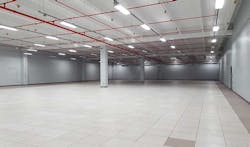In this week’s Voices of the Industry, Paul Weber, VP of Engineering at Rahi Systems, delves into the world of leasing Data Center equipment versus the longstanding practice of buying IT equipment.
The days of owning all the IT products and services within a company are obsolete. With newer technologies edging out old ones, IT equipment has a rapidly diminishing shelf life. But do without them, you cannot. Hence, there’s a growing appetite for leasing IT equipment for your IT needs.
Paul Weber, VP of Engineering at Rahi Systems
I’m seeing more and more requisitions for leasing Data Center equipment within the last year, than what I’ve seen in the 20 years of my IT career.
Budget
It’s not just about having the newest IT equipment when you’re leasing. Isn’t it much easier to ask your CEO for $5,000 a month for the next 36 months or so, rather than a $10 million upfront cost for your data center equipment? The demand for procuring more flexible data center solutions is escalating. Leasing data center technology enables businesses to stay within budget, and can help stretch the dollar to invest in IT equipment you need when you need it. Leasing lets your cash reserves be put towards other strategic business growth, instead of locking it into a high capital cost.
Access to latest IT technology
Leasing data center equipment gives you the access to the latest IT equipment for your business. There is no need to wait for next year’s budget to get the equipment you need. Say for example, there’s a lab testing new products. Leasing will give it the access to the latest/ best IT equipment to optimize results, within its budget.
Hybrid Data Centers
The current data centers landscape has hardware vendors competing with cloud vendors. It’s not apples to apples anymore. As you know, cloud storage can be prohibitively expensive. Companies are figuring out what permutation and combination of cloud storage and in-house, works best for their business needs. When you want to do a bit of both and go hybrid, it doesn’t make sense if you are spending an exorbitant amount on in-house data center equipment. Leasing can be that golden balance. Replacing cloud cost with leasing cost can be really lucrative.
[clickToTweet tweet=”Paul Weber: The days of owning all the IT products and services within a company are obsolete. ” quote=”Paul Weber: The days of owning all the IT products and services within a company are obsolete. “]
Scalability
Based on the type of lease, a business can scale up or reduce its storage and IT capacity. It also circumvents the depreciation for servers and storage equipment. Leasing allows IT flexibility in a business through a budget-friendly plan.
Care & Handling
Leasing IT equipment puts the onus on a business to follow best practices in the care and handling of the equipment. Maintenance costs of the data center equipment could also be baked into the lease. The leasing company will take the responsibility of end-of-life disposal from the user and enable reuse, recycling or environmentally friendly disposal.
There is definitely a marked shift to gain access rather than own data center equipment. CTOs and IT procurement managers are sourcing flexible finance options and leasing solutions for hardware, software, consultancy, project management and training, to help them phase into a multi-year or multi-site implementation. There is a multitude of knowledgeable people to chart the next course of the data center world and that’s very inspiring to me!
Paul Weber is the VP of Engineering at Rahi Systems and a data centers industry veteran. He’s been creating customer-centric data center solutions for the past 20 years. Connect with Paul on LinkedIn.
Rahi Systems is a fast-growing IT products and services provider for an array of tech companies in the Silicon Valley and around the world. Our full lifecycle services include solution design and architecture, implementation, integration, migration and support.


